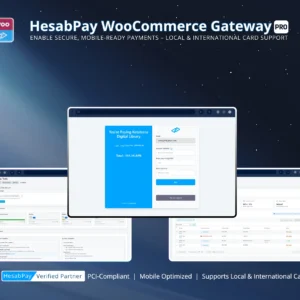Blog Focus: Equipping your team to handle payment incidents efficiently using HesabPay’s diagnostic tools.
1. Why Staff Training Matters #
A technically aware support team reduces downtime, improves response speed, and prevents unnecessary escalation.
Empowering your staff to read and interpret logs turns troubleshooting from guesswork into precision.
2. Core Logging Components #
Train staff to understand:
-
Transaction Logs – API requests/responses.
-
Webhook Logs – Payment confirmation and signature verification.
-
Debug Mode Logs – System errors, warnings, and validation messages.
Enterprise Tip:
Assign read-only log access to support teams while keeping API credentials restricted.
3. Common Scenarios to Train For #
| Scenario | Log Indicator | Action |
|---|---|---|
| Payment not updating | Webhook missing | Verify callback URL |
| Duplicate order | Repeated webhook | Check retry interval |
| Payment declined | Error code 402 | Confirm Merchant PIN |
| Refund not processed | API timeout | Reinitiate request manually |
4. Internal Training Checklist #
-
Provide a log interpretation guide.
-
Conduct live troubleshooting sessions.
-
Rotate responsibilities to ensure redundancy.
-
Create escalation paths for unresolved cases.
Enterprise Tip:
Integrate Slack or email alerts for webhook errors to proactively notify your tech team.
5. Building a Support Culture #
Encourage proactive monitoring and documentation of every issue.
Regular reviews transform support data into long-term stability.
Conclusion:
Trained teams turn data into insight — and insight into reliability.
With structured training, merchants minimize downtime and build operational excellence.



